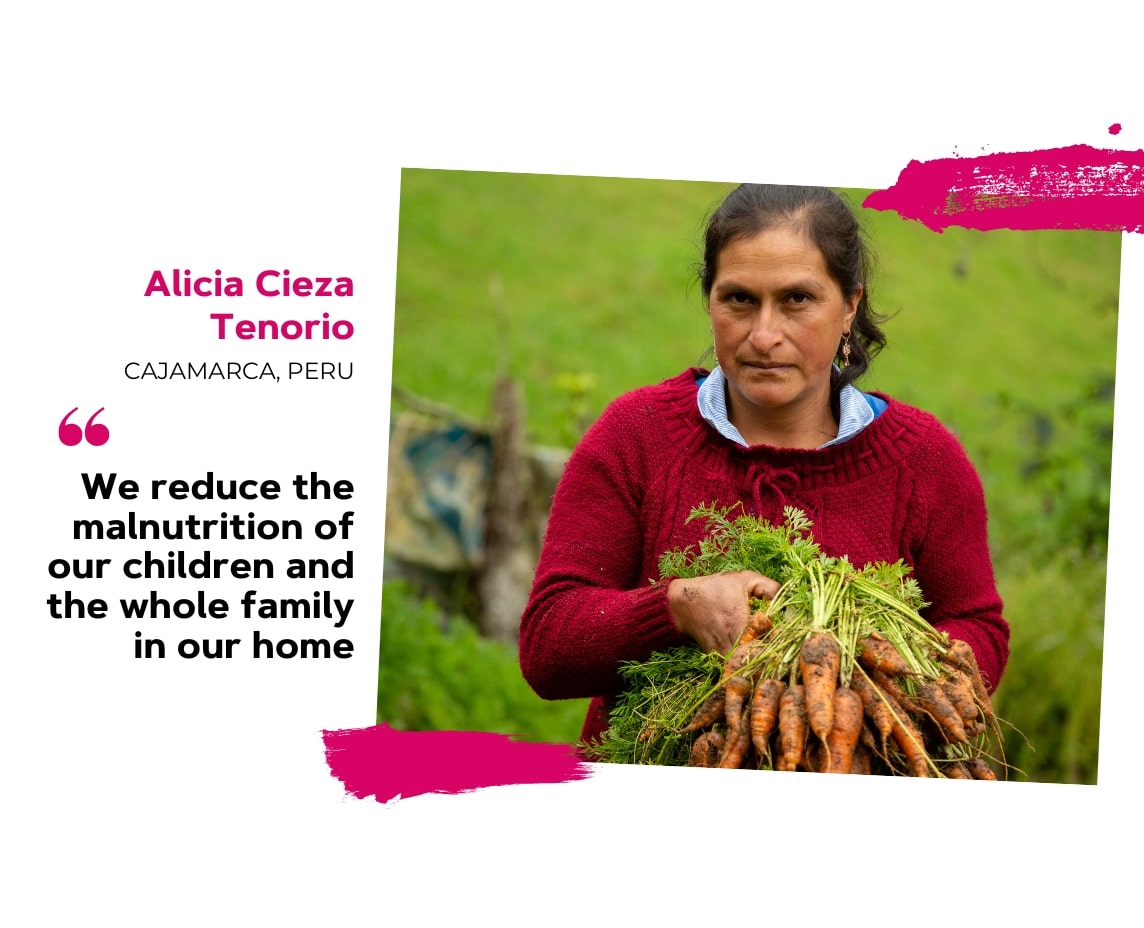Alicia Cieza Tenorio, a farmer, belongs to the Cajerón community, in the Chipuluc Micro-basin, which is located in the department of Cajamarca, in northern Peru.
There, food security depends mainly on agricultural production and animal husbandry.
For this reason, sustainable agricultural practices that maximize production and minimize environmental impact are essential, as well as diversify crops to increase the variety of food available for consumption and marketing.
As Alicia states, in the case of the Cajerón community, the first difficulty in responding to this need was the lack of knowledge and resources for planting rich and varied crops:
“We didn’t plant vegetables, everything was bought”.
Agricultural training and the provision of inputs to local farmers to improve their agricultural practices began with a project of Social Promotion Foundation and its local partner, Farmer School of Education and Health (ESCAES), with the financial support of the Regional Government of Valencia, which was launched in April 2021, and began to bear fruit:
“(…) the technicians came to visit us in each community. They told us how to plant our vegetables. (…) They also gave us crop seeds, such as corn (…), pea seeds, beans… We have sown and harvested all these seeds”.
In addition, the community began to participate actively and associatively in the planning and execution of initiatives related to food security and sustainable agriculture, also with the aim of improving their quality of life. In this sense, Alicia promoted that a group of farmers associate to grow vegetables:
“We associated, we formed our groups and we made our organic gardens”.
This, in itself, was a challenge, since, despite the fact that agricultural women in Cajamarca play an important role in food production and the sustainable development of the region, in many cases, they face challenges and barriers, not only in access to resources and opportunities, but also cultural:
“The difficulty was getting together, associating some mothers. Some wanted, some didn’t. But now, little by little, we organized ourselves”.
Once these difficulties have been overcome, a last step has been to increase access to local and regional markets to sell their products and improve the family income:
“We have also sold in the market and thanks to these benefits we have had family support”.
In summary, the efforts of people like Alicia and her drive to implement initiatives that improve production and diversify food, promote sustainable agricultural practices, strengthen local organizations and encourage active community participation have been key to improving security Food in the Cajerón community:
“The achievements have been that if we obtain our vegetables, we reduce the malnutrition of our children and the whole family in our home,” she proudly affirms today.





